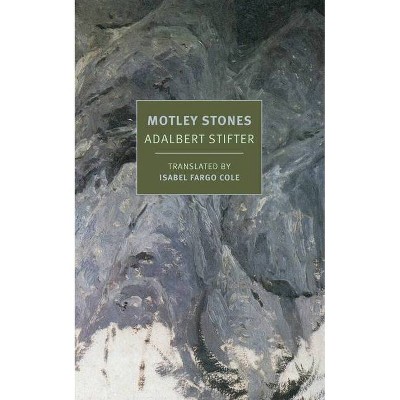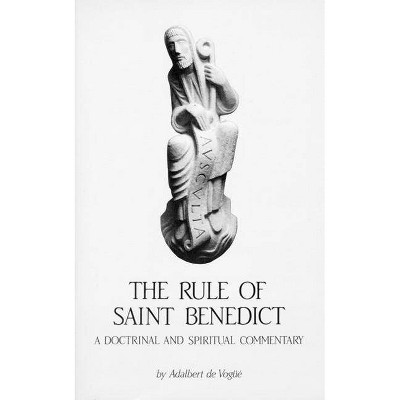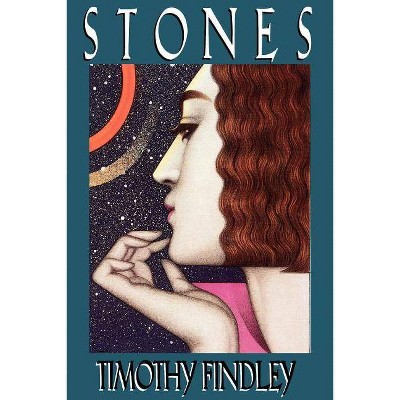Motley Stones - by Adalbert Stifter (Paperback)

Similar Products
Products of same category from the store
AllProduct info
<p/><br></br><p><b> About the Book </b></p></br></br>"It was once said against me that I fashion only small things, and that my people are always ordinary people. If that is true, I am now in the position of offering readers something smaller and more insignificant still, namely an assortment of fancies for young hearts. Nor are they even meant to preach virtue and morals, as the custom is, but rather to work solely by what they are. If there is anything noble and good in me, it will exist in my writings on its own; but if it is not in my nature, I will strive in vain to depict the sublime and the beautiful, for baseness and ignobility will always show through. Fashioning great or small things was never the aim of my writings; I was guided by other laws entirely. Art is so high and exalted for me; for me, as I have said elsewhere, it is the highest thing on earth after religion, and so I have never regarded my writings as poetical, nor shall I presume to regard them so. The world has but a very few poets, who are the high priests, the benefactors of humanity; but it has a great many false prophets. Yet if not all spoken words can be poetry, they may be something else whose existence is not utterly unjustified. To give kindred spirits an hour of pleasure, to send forth greetings to all of them known or unknown, and add a grain of good to the edifice of the eternal, that was my writings' aim, and that it shall remain. I would be very glad to know for certain that I had achieved even this aim alone"--<p/><br></br><p><b> Book Synopsis </b></p></br></br><b>The first complete English translation of the nineteenth-century Austrian innovator's evocative, elemental cycle of novellas.</b> <p/>For Kafka he was "my fat brother"; Thomas Mann called him "one of the most peculiar, enigmatic, secretly audacious and strangely gripping storytellers in world literature." Often misunderstood as an idyllic poet of "beetles and buttercups," the nineteenth-century Austrian writer Adalbert Stifter can now be seen as a radical experimenter with narrative and a forerunner of nature writing's darker currents. One of his best-known works, the novella cycle <i>Motley Stones</i> now appears in its first complete English translation, a rendition that respects the bracing strangeness of the original. In six thematically linked novellas, including the beloved classic "Rock Crystal," human dramas play out amid the natural cycles of the Alps or the urban rhythms of Vienna--environments so keenly observed that they emerge as the tales' most indomitable protagonists. Stifter's human characters are equally haunting--children braving perils, eccentrics and loners harboring enigmatic torments. "We seek to glimpse the gentle law that guides the human race," Stifter famously wrote. What he glimpsed, more often than not, was the abyss that lies behind the idyll. The tension between his humane sensitivity and his dark visions is what lends his writing its heartbreaking power.<p/><br></br><p><b> Review Quotes </b></p></br></br><br>"The work of Adalbert Stifter, who was one of the very few great novelists in German literature, can be compared to no other writer of the nineteenth century in pure happiness, wisdom, and beauty. . . . Stifter became the greatest landscape-painter in literature . . . someone who possesses the magic wand to transform all visible things into words and all visible movements--into sentences." --Hannah Arendt <p/>"More and more I admired this simple spirit that gazes out so purely at the world's phenomena. Things, often very strange things, often very perilous, enter [Stifter's] awareness as though it were the light of a lamp and are calmed for a while, as though hearing music." --Rainer Maria Rilke <p/>"[Stifter's] vision of the world is largely the result of a disregard for literary convention that places human experience at the center of everything, anticipating contemporary calls for an ecological literature that recognizes Nature--what critic Amitav Ghosh calls "nonhuman presences"--as an equal part of the Reality that novelists seek to represent. . . . The collective result is like a map to a particular literary sensibility, a worldview in which storytelling is at the center of humanity, but humanity is not the center of the world." --Martin Riker, <i>The Wall Street Journal<br></i><br>"What made [Stifter] a writer's writer? The answer lies buried in the sentences. Stifter does not waste a letter. His words are chosen with a poet's thrift. . . As you read [<i>Motley Stones</i>], you have the curious sensation that his paragraphs are becoming tangible objects. . . . Isabel Fargo Cole's translation is deft and sensitive, even beautiful. . . true not only to Stifter but also to the rugged Bohemian landscape that was his muse." --Forester McClatchey, <i>The Washington Examiner <p/></i>"It is uncanny to revisit [Stifter's] writings at a time when vast parts of the earth are turning uninhabitable. His unease about a disappearing world echoes our own, as does his denial about the onrushing future. . . . His fiction in fact reveals, with great subtlety, the ways in which our sense of self is mediated by our surroundings. Natural phenomena are not simply metaphors in his stories, though they serve a dramatic purpose. Rather, they are the medium through which people come to know their convictions--or confront their utter confusion." --Ratik Asokan, <i>The Nation</i><br><p/><br></br><p><b> About the Author </b></p></br></br><b>Adalbert Stifter</b> (1805-1868) was born in the rural Bohemian market town of Oberplan, then part of the Austrian Empire but today in the Czech Republic. He published his first story in 1840, the success of which started him on a career as a writer and newspaper editor. His works include numerous stories and novellas, as well as <i>Witiko</i>, a historical novel, and <i>Indian Summer</i>, considered one of the finest examples of the German bildungsroman. <p/><b>Isabel Fargo Cole</b> is a writer and a translator of such authors as Annemarie Schwarzenbach, Franz Fühmann, Wolfgang Hilbig, and Klaus Hoffer. She lives in Berlin, Germany.
Price History
Price Archive shows prices from various stores, lets you see history and find the cheapest. There is no actual sale on the website. For all support, inquiry and suggestion messagescommunication@pricearchive.us




















